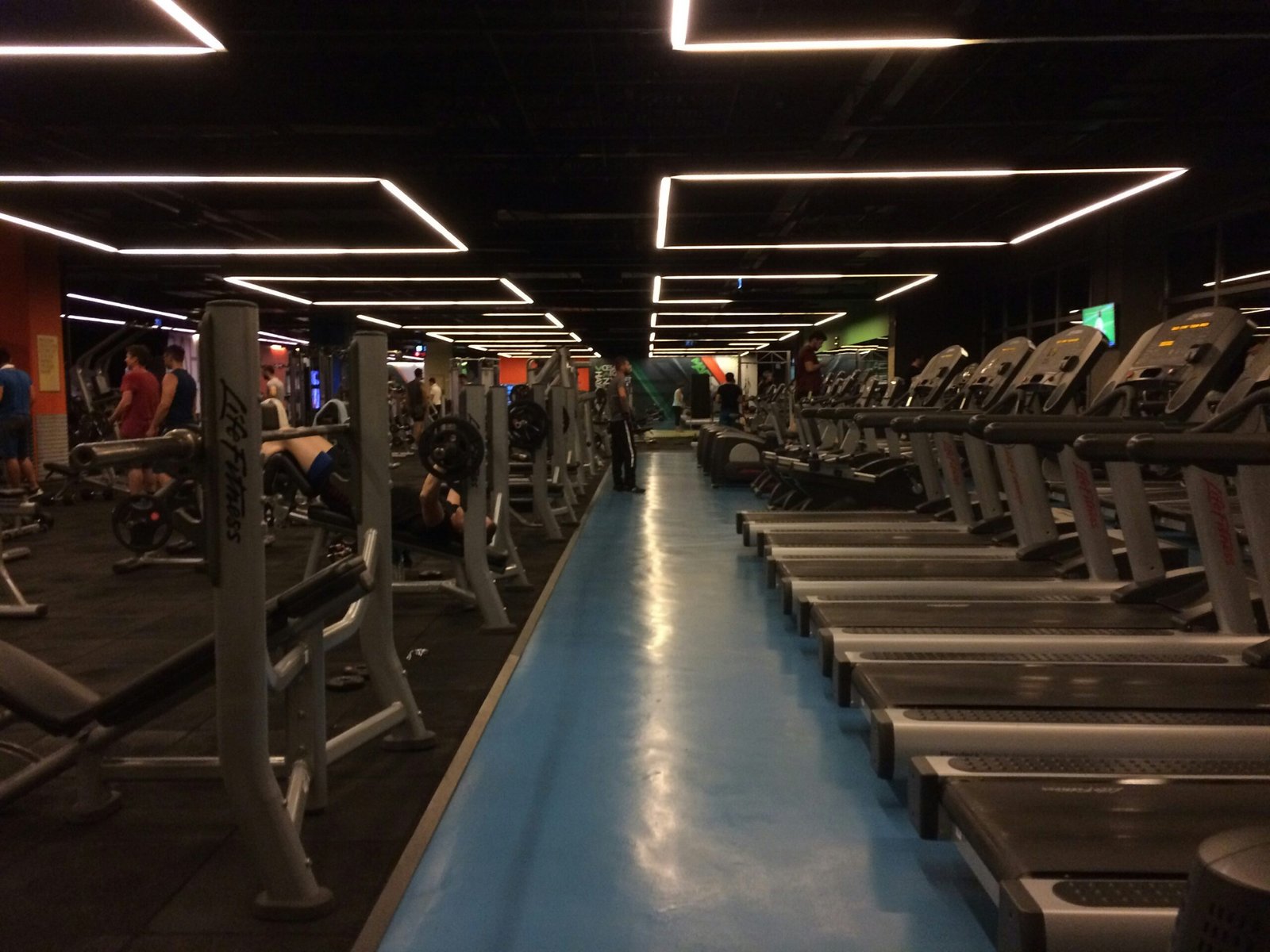Introduction to AI in Fitness
Artificial intelligence (AI) has emerged as a transformative force across various industries, revolutionizing the way businesses operate and interact with consumers. In the fitness sector, AI technology, encompassing machine learning, data analytics, and personalized algorithms, is beginning to reshape traditional fitness coaching. The integration of these advanced technologies allows for a more tailored approach to fitness, meeting the unique needs of individual users. As a result, people can experience significant improvements in their workout regimes, nutrition plans, and overall fitness journeys.
Machine learning, a subset of AI, enables platforms to analyze vast amounts of data to identify patterns and trends that are not immediately apparent to human coaches. This capability fosters the development of highly personalized fitness solutions that cater to an individual’s specific goals and preferences. For instance, an AI-powered platform can effectively track one’s progress, suggest adjustments to workout routines, and even propose dietary modifications that align with a user’s unique requirements.
Furthermore, data analysis plays a critical role in enhancing user experience. By meticulously examining user-generated data, fitness coaches can glean valuable insights that inform better strategies for improved performance. This process helps eliminate the guesswork associated with traditional coaching methods, as users receive precisely what they need to achieve their fitness goals. Beyond physical training, AI technology also extends to nutrition, enabling the development of comprehensive meal plans tailored to support an individual’s athletic performance.
In summary, the emergence of AI-powered coaching platforms signifies a paradigm shift in the fitness industry. With the potential to provide personalized recommendations based on comprehensive data analysis, these advancements offer users a more effective and engaging way to pursue their fitness aspirations. As AI continues to evolve, its impact on fitness coaching will likely expand, further enhancing the personalization and efficiency of fitness journeys.
Benefits of AI-Powered Fitness Coaching
AI-powered fitness coaching platforms have emerged as a transformative force in the realm of health and wellness, offering numerous benefits that traditional coaching methods may struggle to match. One of the foremost advantages is the level of personalization these platforms provide. By leveraging individual data—such as biometric information, fitness levels, and exercise preferences—AI systems can design workout and nutrition plans that are specifically tailored to meet unique individual needs. This level of customization not only enhances user engagement but also significantly improves the efficiency of workouts.
Accessibility is another vital aspect where AI-powered coaching excels. These platforms typically offer 24/7 support, allowing users to access workouts, training advice, and motivational resources at any time. This eliminates the constraints of traditional coaching, which often relies on scheduled sessions. Clients can receive immediate guidance and feedback, facilitating a more dynamic fitness journey.
Scalability is yet another compelling benefit of AI-driven coaching solutions. These platforms can accommodate thousands of users simultaneously, providing high-quality coaching without the limitations of traditional one-on-one training. This scalability allows fitness companies to reach vast audiences, democratizing access to professional training resources and making expert guidance available to a broader demographic.
Adaptability also plays a crucial role in the effectiveness of AI fitness coaching. Advanced algorithms enable platforms to modify training and nutrition plans in real-time based on user progress and feedback. If a participant is not achieving the desired results or is facing challenges, the system can quickly adjust the program to optimize performance. For instance, platforms like Freeletics and Future have successfully integrated these benefits to offer personalized coaching experiences, demonstrating how AI technology can revolutionize fitness. Ultimately, the use of AI in fitness coaching paves the way for more effective, engaging, and accessible health solutions.
Popular AI Fitness Coaching Platforms
The landscape of fitness coaching is rapidly evolving, particularly with the emergence of AI-powered platforms designed to cater to a diverse range of fitness enthusiasts. Among the most notable options are platforms like Freeletics, Fitbod, and Openfit, each of which provides unique features tailored to different audiences.
Freeletics primarily focuses on bodyweight training and personalized workout plans, making it an excellent choice for users who prefer exercising without equipment. Its AI-driven algorithm customizes workouts based on user feedback, fitness levels, and goals. The platform’s intuitive interface enhances user engagement, offering interactive training sessions and community support, which are vital for maintaining motivation.
Fitbod, on the other hand, is well-suited for those looking to engage in weight training. Utilizing sophisticated algorithms, it recommends workouts based on the user’s previous sessions, available equipment, and specific fitness objectives. The platform also adapts to muscle recovery, ensuring a balanced routine that maximizes effectiveness and minimizes the risk of injury. Its user-friendly interface allows seamless tracking of progress, further encouraging commitment to fitness goals.
Openfit combines both live and on-demand classes, providing a versatile approach to fitness. This platform appeals to users who appreciate structure but also desire flexibility. Openfit employs cutting-edge technology to deliver personalized workout experiences, including yoga, HIIT, and strength training. Additionally, users have access to nutrition guidance, making it a comprehensive solution for holistic health.
Each of these AI-powered coaching platforms showcases distinctive features and benefits, catering to various fitness backgrounds and preferences. By evaluating their offerings, users can select the platform that best aligns with their personal fitness journey.
Future Trends in AI Fitness Coaching
The field of fitness coaching is poised for significant transformation, driven largely by advances in artificial intelligence (AI) technology. As the demand for individualized and accessible fitness solutions grows, AI-powered coaching platforms are evolving to meet the diverse needs of users. One notable trend is the integration of virtual and augmented reality into fitness coaching. By leveraging these immersive technologies, users can participate in interactive workouts that simulate real-life environments, enhancing motivation and engagement. This innovative approach not only makes workouts more enjoyable but also allows for a more tailored experience based on user preferences and fitness levels.
Another exciting trend is the potential for collaboration between AI fitness coaching platforms and health technology companies. These partnerships can lead to the development of comprehensive wellness solutions that integrate physical training with nutrition, mental health support, and chronic disease management. By combining data from wearable devices, health assessments, and AI-driven insights, users can receive holistic coaching that addresses various aspects of their well-being. This convergence of fitness and health technology is likely to create a more informed user base, encouraging proactive health management.
Furthermore, as AI continues to advance, we can anticipate a shift towards highly personalized fitness experiences in the coming decade. The next generation of AI coaching platforms will likely incorporate machine learning algorithms that analyze user data more effectively, predicting individual needs and adjusting workout plans accordingly. With the ability to learn from ongoing interactions, these platforms will create tailored fitness regimens that evolve as users progress. This adaptive approach aims to maximize results and minimize the risk of injury, ultimately fostering long-lasting fitness habits.
As the industry advances, users can expect a future where AI-powered coaching transcends conventional fitness paradigms, providing innovation and adaptability tailored specifically for them.









